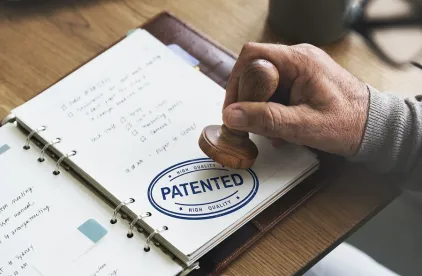In order to carry out the “just, speedy, and inexpensive determination” of the cases before them, courts rely on scheduling orders to ensure that cases move forward in a timely and efficient manner. In patent cases, where there are several complex phases—including claim construction and expert depositions—the deadlines set forth in the scheduling order must be understood and adhered to closely. In one recent case, a defendant’s missed date led to a stern rebuke from the court and a loss of evidence.
Plaintiff LevelUp had sued Defendant Relevant for infringement of LevelUp’s patent relating to mobile payment technology. The Joint Pretrial Scheduling Order required the parties to disclose proposed claim constructions and supporting extrinsic evidence by May 2, 2017. In its submission, Relevant took the position that three of the patent claims at issue are indefinite—but did not disclose its reliance on an expert declaration to support its position until the opening claim construction brief was submitted three weeks later. LevelUp subsequently moved to strike Relevant’s expert declaration as untimely in view of the Scheduling Order—which resulted in a delay in the claim construction process that prejudiced LevelUp.
In deciding the motion, the court sided with LevelUp. Judge McConnell pointed out that Relevant’s violation of the Scheduling Order “will necessarily result in a delay because it will push back deadlines.” More importantly, Relevant offered no explanation for the delay in providing its expert declaration—merely noting that the expert had been engaged on May 19, 2017. Thus, the court concluded that “Relevant has not only failed to show good cause, it has also failed to show any cause.”
Finally, Judge McConnell emphasized the importance of scheduling orders in enabling courts to manage their dockets and noted that “[w]hen a litigant openly flouts a court’s scheduling order—as Relevant most certainly did—that litigant impedes the court’s ability to manage its docket and unfairly surprises, or at the very least delays, the other side.” As a result, the court granted LevelUp’s motion to strike.
This ruling reinforces the need for litigants to be aware of all upcoming deadlines in a court’s scheduling order, and either comply with these deadlines or have a strong reason as to why a date cannot be met. Failure to do so may result in severe consequences which may negatively impact the case.
The case is SCVNGR, Inc. d/b/a LevelUp v. DailyGobble, Inc. d/b/a Relevant, Case No. 1:16-cv-00134-M-LDA, before Judge John J. McConnell, Jr. A copy of the court’s order can be found here.



 />i
/>i

